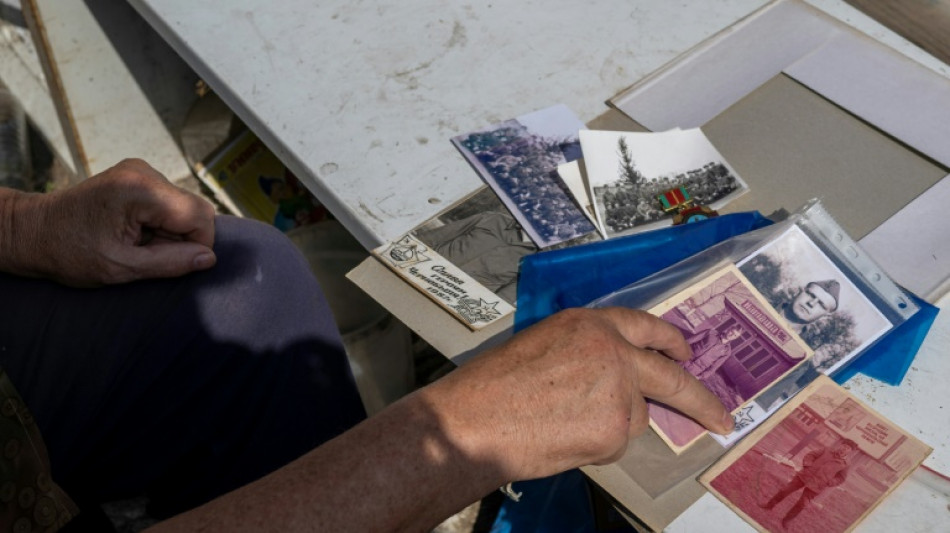
-
 UK lawmakers hold emergency debate to save British Steel
UK lawmakers hold emergency debate to save British Steel
-
Warnings issued, flights cancelled as strong winds whip north China

-
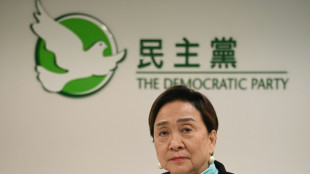 End of the line for Hong Kong's Democratic Party
End of the line for Hong Kong's Democratic Party
-
Israel takes control of key Gaza corridor, to expand offensive
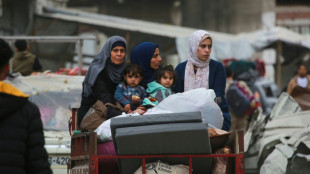
-
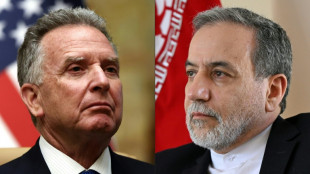 First US-Iran nuclear talks in years start in Oman
First US-Iran nuclear talks in years start in Oman
-
Asian football chief fears 'chaos' if 2030 World Cup expands to 64 teams

-
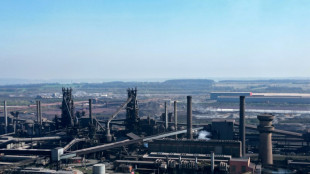 UK lawmakers begin emergency debate to save British Steel
UK lawmakers begin emergency debate to save British Steel
-
Accord reached 'in principle' over tackling future pandemics: negotiating body

-
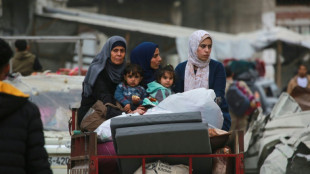 Hamas expects 'real progress' in Cairo talks to end Gaza war
Hamas expects 'real progress' in Cairo talks to end Gaza war
-
Lady Gaga brings mayhem to the desert on Coachella day one

-
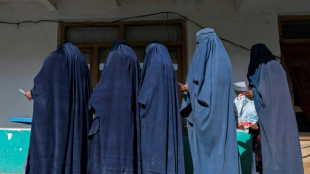 UN warns US aid cuts threaten millions of Afghans with famine
UN warns US aid cuts threaten millions of Afghans with famine
-
Japan PM warns of divided world at futuristic World Expo opening ceremony
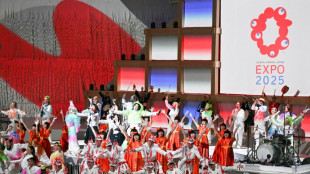
-
 Junta chief frontrunner as Gabon holds first election since 2023 coup
Junta chief frontrunner as Gabon holds first election since 2023 coup
-
Iran delegation in Oman for high-stakes nuclear talks with US
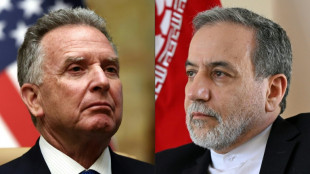
-
 Australia beat Colombia to end BJK Cup bid on winning note
Australia beat Colombia to end BJK Cup bid on winning note
-
German refinery's plight prompts calls for return of Russian oil

-
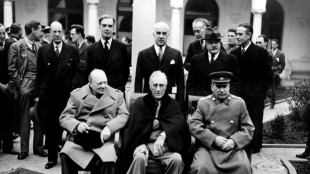 Trump carves up world and international order with it
Trump carves up world and international order with it
-
Paris theatre soul-searching after allegations of sexual abuse

-
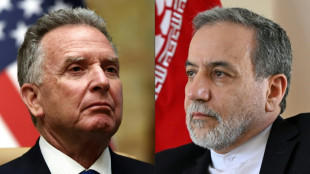 US, Iran to hold high-stakes nuclear talks
US, Iran to hold high-stakes nuclear talks
-
Frustrated families await news days after 222 killed in Dominican club disaster
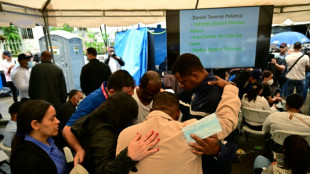
-
 Jokic triple double as Denver fight back for big win
Jokic triple double as Denver fight back for big win
-
Trump envoy suggests allied zones of control in Ukraine
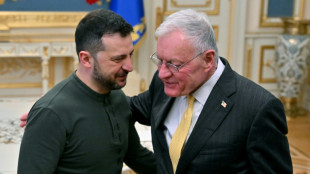
-
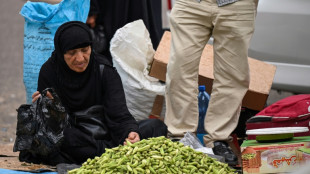 Iraqi markets a haven for pedlars escaping Iran's economic woes
Iraqi markets a haven for pedlars escaping Iran's economic woes
-
Chinese manufacturers in fighting spirits despite scrapped US orders

-
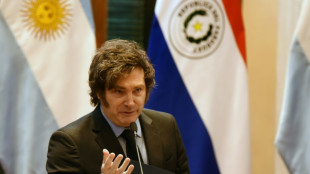 Argentina receives $42 bn from international financial institutions
Argentina receives $42 bn from international financial institutions
-
Menendez brothers' resentencing can go ahead: LA judge rules
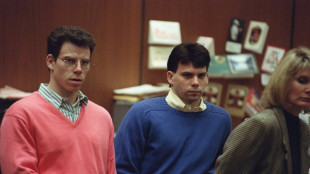
-
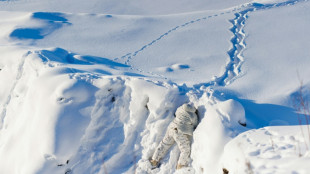 'Hard on the body': Canadian troops train for Arctic defense
'Hard on the body': Canadian troops train for Arctic defense
-
Trump, 78, says feels in 'very good shape' after annual checkup

-
 McKellar 'very, very proud' after 'Tahs tame rampant Chiefs
McKellar 'very, very proud' after 'Tahs tame rampant Chiefs
-
Man executed by firing squad in South Carolina

-
 Defending champ Scheffler three back after tough day at Augusta
Defending champ Scheffler three back after tough day at Augusta
-
Ballester apologizes to Augusta National for relief in Rae's Creek

-
 Scorching Coachella kicks off as Lady Gaga set to helm main stage
Scorching Coachella kicks off as Lady Gaga set to helm main stage
-
McIlroy, DeChambeau charge but Rose clings to Masters lead

-
 Langer misses cut to bring 41st and final Masters appearance to a close
Langer misses cut to bring 41st and final Masters appearance to a close
-
Ecuador presidential hopefuls make last pitch to voters

-
 Rose knocking on the door of a major again at the Masters
Rose knocking on the door of a major again at the Masters
-
DeChambeau finding right balance at Augusta National

-
 Spurs leaker not a player says Postecoglou
Spurs leaker not a player says Postecoglou
-
All Black Barrett helps Leinster into Champions Cup semis

-
 Round-two rebound: Resilient McIlroy right back in the Masters hunt
Round-two rebound: Resilient McIlroy right back in the Masters hunt
-
Asset flight challenges US safe haven status

-
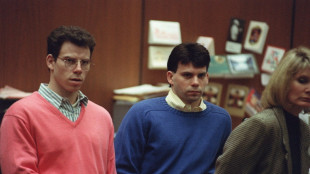 Menendez brothers appear in LA court for resentencing hearing
Menendez brothers appear in LA court for resentencing hearing
-
McIlroy, DeChambeau charge as Rose clings to Masters lead

-
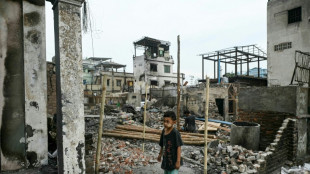 UN seeks $275 million in aid for Myanmar quake survivors
UN seeks $275 million in aid for Myanmar quake survivors
-
Frustrated families await news days after 221 killed in Dominican club disaster
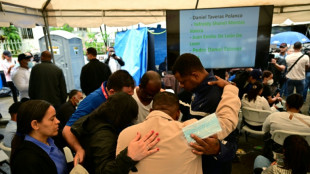
-
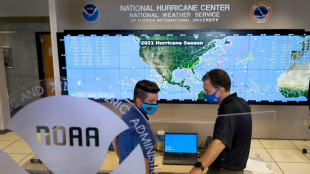 Trump wants to halt climate research by key agency: reports
Trump wants to halt climate research by key agency: reports
-
Fed official says 'absolutely' ready to intervene in financial markets

-
 Slumping Homa happy to be headed into weekend at the Masters
Slumping Homa happy to be headed into weekend at the Masters
-
Morbidelli fastest ahead of cagey MotoGP title rivals in Qatar practise


Ukraine nuclear plant standoff stirs Chernobyl memories
Anastasiya Rudenko clutches the gleaming gold medal her late husband Viktor was awarded for working in the Chernobyl nuclear disaster zone.
He died in 2014 from bladder cancer -- perhaps a result of radiation, she thinks. Now she mourns his loss in the Ukrainian village of Vyschetarasivka, across the river from the Zaporizhzhia atomic power plant.
Kiev and Moscow accuse each other of shelling near the facility. Rockets have struck a radioactive waste storage area and monitors warn of a "grave" crisis with potential for catastrophic fallout.
Across a 14-kilometre (nine-mile) stretch of the Dnipro River, the station's hulking silhouette is clearly visible from the village where Rudenko handles paperwork proving her partner's fateful role in history's greatest nuclear calamity.
"We could have the same fate as the people of Chernobyl," the 63-year-old told AFP.
"There's nothing good in what's going on, and we don't know how it will end."
- In 'the zone' -
Ukraine remains deeply scarred by the 1986 Chernobyl nuclear catastrophe, when a Soviet-era reactor exploded and streamed radiation into the atmosphere in the country's north.
Russia captured the site when it began its large-scale invasion of Ukraine in late February, stirring safety fears, but it was abandoned within weeks when Moscow failed to take Kyiv.
The Zaporizhzhia nuclear power plant in southern Ukraine was also occupied in the early days of the war but it has remained in Russian hands ever since.
Ukraine says enemy troops are launching attacks from the facility -- Europe's largest -- and its own military cannot return fire.
The escalating situation brings dark echoes from the past for those with close links to Chernobyl.
Anastasiya's husband Viktor worked as one of the 600,000 "liquidators", tasked with painstakingly decontaminating the "Chernobyl exclusion zone," where high radiation levels forced civilian evacuations.
The official death toll of Chernobyl remains just 31, however that figure is hotly contested with some estimating that thousands of liquidators may have suffered fatal doses of the invisible rays.
Viktor drove a truck in "the zone" for a total of 18 days. A gold service ribbon awarded by the Ukraine Chernobyl Union shows atoms swirling around the "bell of Chernobyl", a symbol which has become a ringing reminder of the event.
A brittle document from Ukraine's defence ministry archives certifies Viktor's work and the dose of radiation he absorbed -- 24.80 roentgen.
"When I see my husband's papers, I feel pain," explained Anastasiya. "Many people died or were permanently injured."
"When the Zaporizhzhia plant is being shelled we can see it quite well," she added. "People are rumouring that there is something leaking, but they avoid publicly admitting it."
- Living liquidators -
Vasyl Davydov says there are three "liquidators" still living in the village of Vyschetarasivka, a bucolic collection of garden-fringed bungalows with a hazy view of the Zaporizhzhia plant's six reactors and twin cooling towers.
He is one of them. He spent three and a half months working on Chernobyl decontamination, with 102 trips to "the zone" operating a crackling dosimeter to measure levels of radiation and razing tainted homes to the ground.
In his garden the 65-year-old unpacks his own service medals onto a refrigerator lying on its side, used as a makeshift table. One depicts the figure of Atlas holding the world, the image of a globe supplanted by the Chernobyl plant.
There are pictures too. Of Davydov as a handsome uniformed serviceman, posing with comrades and in front of a patriotic sign declaring: "Soldier! We will revive life on the grounds of Chernobyl."
"I was there. I saw it all, and I saw the scale," he said.
Just days after Russian troops took the plant iodine tablets, to block a certain kind of radiation, were handed out in the village in case of emergency, according to Davydov.
But his time working in "the zone" seems to have inured him to a fear of living opposite the Zaporizhzhia plant, even in a moment of crisis.
"If you believe everything, then you can go crazy," he said. "So you filter everything through your experience."
"What will my fear do?" he asked. "How can it help me?"
S.Gregor--AMWN